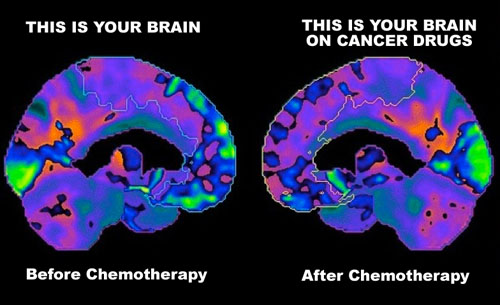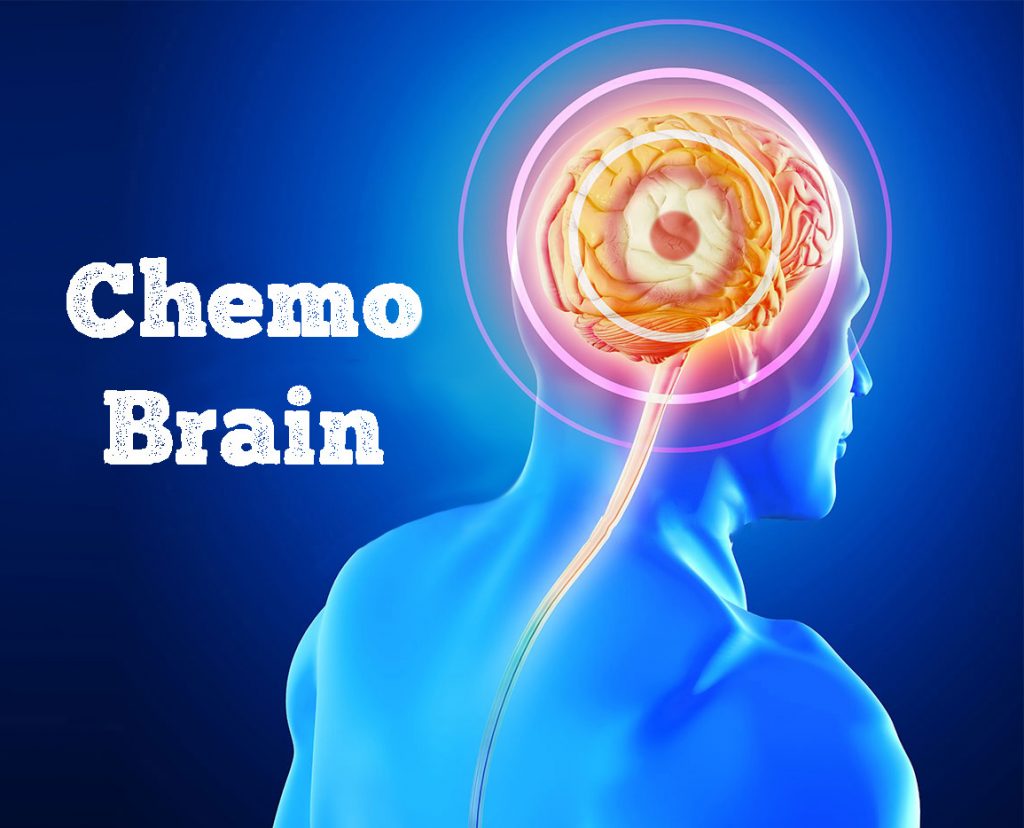What is Chemo Brain or Chemo Fog?
If you or someone you know has had the unfortunate experience of being diagnosed with cancer you have had to make some tough choices in order to preserve your life and quality of life. Perhaps in your case, the choice was made to undergo the harsh treatments of chemotherapy.
Chemo brain is a common term used by cancer survivors to describe thinking and memory problems that can occur during and after cancer treatment. Chemo brain can also be called chemo fog, cancer-related cognitive impairment or cognitive dysfunction.
Chemo brain has been used for many years to denote brain malfunctions in cancer patients, but chemotherapy is not the primary reason for these malfunctions. Chemo brain is the frustrating phase of cancer treatment and the painful events attached to it. Though chemo brain is a widely used term, the causes of concentration and memory problems aren’t well-understood.
What Causes Chemo Brain or Chemo Fog?
- Lack of red blood corpuscles or anemia
- Tiredness due to the stormy medical procedures
- Contamination
- Menopause due to abnormal changes in hormone
- Nutritional shortage
- Sleep disorder or insomnia
- Internal fear of growing symptoms
- Pain or side effects of medical procedures and medicines
More research is needed to better pinpoint the exact chemical or issue causing the impairment.
What are the Symptoms of Chemo Brain or Chemo Fog?
The multiple signs and symptoms of chemo brain or chemo fog are:
- Uncertainty or confusion
- Lack of focus or concentration
- Dropped words
- Problem in learning anything new
- Inability to multi-tasking
- Tiredness
- Feeling low mentally
- Shorter attention span
- Short-term memory loss
- Depression
- Problems recalling incidents, events, names, words, or figures
What Tests are Conducted to Diagnose Chemo Brain or Chemo Fog?
 There is no clear definition of chemo brain. Memory tests of cancer patients after severe sessions of chemotherapy or radiation may detect the syndromes of chemo brain, however, there is no specified test for chemo brain. Cancer survivors who experience these symptoms often score in normal ranges on memory tests.
There is no clear definition of chemo brain. Memory tests of cancer patients after severe sessions of chemotherapy or radiation may detect the syndromes of chemo brain, however, there is no specified test for chemo brain. Cancer survivors who experience these symptoms often score in normal ranges on memory tests.
A health care professional may suggest tests, i.e. blood test, CT scan or other tests to investigate the root cause of the memory troubles. Patients may be referred to a specialist to best improve mental clarity.
How is Chemo Brain or Chemo Fog Treated?
Neither the cause nor the cure for chemo brain has been determined. Symptoms do not usually linger, so doctors rely on medications and mental health methods to mitigate the symptoms. Symptoms vary from patient to patient and doctors customize solutions for each individual.
Medications for Chemo Brain or Chemo Fog
There isn’t a cure-all medication for chemo brain. Medications below are usually prescribed by oncologists for particular symptoms:
- Methylphenidate or Concerta or Ritalin: These drugs are for attention deficiency or hyperactivity disorders
- Donepezil or Aricept: These drugs are used particularly for Alzheimer’s disease
- Provigil or Modafinil: These drugs are for sleep-rated issues
These drugs are only to mitigate the complex symptoms of chemo brain or chemo fog.
Alternative Medicines for Chemo Brain or Chemo Fog
As chemo brain is a temporary phase in cancer patients, doctors usually provide suggestions or medication for the symptoms until it passes. There are, however, several ways to cope up with chemo brain naturally.
- Ginkgo Supplements: Ginkgo supplements can be used to aid with memory loss.
- Vitamin E: Brain cells are greatly nourished by the intake of Vitamin E.
These are both safe and natural, but you should always consult your doctor if you are taking other medications to ensure no complications.
>> 5 Pro Tips for Exercise Program for Cancer Patients
Recommended Lifestyle Changes for Chemo Brain or Chemo Fog
Try the following lifestyle changes to ease the symptoms of chemo brain or chemo fog:
- Try crossword puzzles or other riddles for brain exercise.
- Find a calm and peaceful daily environment for home and work.
- Eat healthy and sleep 7-9 hours per day.
- Use calendars to organize your day. Create a routine.
- Physical activity boosts brain health, so be physically active daily with at least 150 minutes of moderate intensity physical activity weekly. This can be broken into 30 minutes a day, 5 days a week.
- Adopt several stress releasing techniques and take small breaks throughout the day.
Mindfulness Meditation to Reduce Chemo Brain
The Regenstrief Institute and the Indiana University School of Medicine recently conducted a study which shows us that a stress reduction program based on mindfulness can create a sustainable improvement to people who suffer from cognitive impairment due to cancer treatments. This program has shown success in improving focus, memory, and function in cancer survivors. This treatment referred to as MBSR was used to help colorectal and breast cancer survivors who were feeling fatigued after their battle, most of whom were in fact treated with chemotherapy.
Final Notes
If you or a loved one is experiencing chemo brain or chemo fog, you are not alone. Many patients undergo chemotherapy every day, and many experience the mental fatigue associated with the treatment. We hope this article gave you a better understanding of what chemo brain is, how it works, and how to cope with it.



